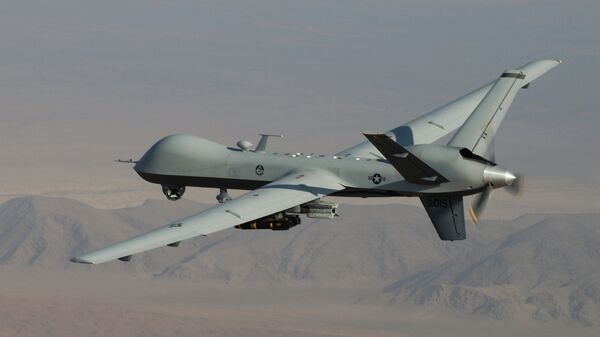In 2019, the US carried out a record 63 airstrikes in Somalia, and as of mid-March it’s already carried out 26 strikes in 2020, AFRICOM spokesperson Navy Lt. Christina Gibson told Military Times, noting the rate “lightly exceeds last year’s pace."
However, if strikes continue at this pace, the number could well top 100 by the end of the year.
AFRICOM chief Army Gen. Stephen J. Townsend has defended the increased tempo, telling Voice of America earlier this week that “the threat is higher” in the wake of al-Shabaab’s daring attack on Manda Bay Air Base in Kenya in late January. “That’s exactly why you’ve seen this increase in strike activity.”
Townshend told the House Armed Services Committee on Tuesday that if left “unchecked,” al-Shabaab, which is closely associated with al-Qaeda, and Daesh’s franchise in the Sahara and West Africa, the Islamic State in the Greater Sahara (ISGS), would become “a threat beyond the region.”
"Al-Shabaab is the largest and most kinetically violent arm of al-Qaeda,” the AFRICOM commander told US lawmakers. “They are a serious threat to not only the Somali people, but the entire region, and one example [is] in a recent attack in Kenya. Another example is their threats to embassies in the region outside of Somalia. … I would just say that I'm of the belief that al-Shabaab today poses a significant threat to American interests in the region.”
Brig. Gen. Dagvin Anderson, commander of Special Operations Command Africa, recently noted that al-Qaeda franchises have sprung up in West Africa, too, where “they’re quietly establishing connections” with little fanfare.
"We've seen them intermarry into the local tribes. We've seen them become very entrenched in local politics and do this very quietly. But they know if they're too public about their intentions, or if they raise the flag over some city, that will draw the attention of the West,” he noted. "They want to eventually establish a caliphate.”
Priorities
The warnings come amid debate at the Pentagon about the redeployment of US forces from scattered theaters like AFRICOM, which has just 6,000 troops and contractors on the continent, toward locations where they can be used to compete directly with Russia and China.
In late January, after al-Shabaab staged a pre-dawn raid on Manda Bay Air Base that killed three Americans and destroyed several aircraft, Townshend blasted the notion that Africa was a backwater compared to the US’ “great power competition,” telling lawmakers al-Shabaab and ISGS remained an “inconvenient reality” US commanders could not ignore.
France, which formerly ruled much of West Africa as colonies, has roughly 5,100 troops in West Africa - where ISGS has staged several deadly attacks in Burkina Faso, Mali and Niger - vowing to carry the fight to ISGS whether or not the Americans join them.
Little Accountability
Since the waning years of former US President Barack Obama’s tenure, the US has slowly rolled back protective measures put in place to minimize or prevent civilian casualties resulting from US airstrikes in Somalia and other undeclared war zones.
As Sputnik has reported, US commanders are no longer required to verify the identities of their targets or to ensure that civilians are not in the proximity of the strike location before ordering an attack - they are only required to assess a "reasonable certainty" that enemy fighters are present before ordering an airstrike. As a consequence, the Pentagon no longer records civilian casualties, leading AFRICOM to erroneously claim last year that “no AFRICOM airstrike resulted in any civilian casualty or injury” between October 2018 and February 2019. Only when confronted by Amnesty International with direct evidence of civilian deaths in numerous airstrikes, including some never publicized, did the Pentagon backtrack on its claims.


